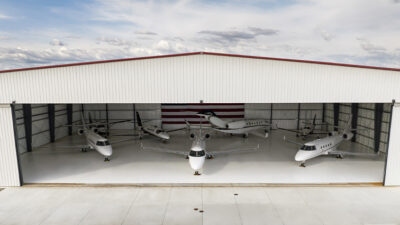What Would Marcus Aurelius Do?

Many years ago, the human error demigod James Reason introduced the world to his iconic Swiss Cheese model of safety. In it, he described how we are all protected by several layers of Swiss Cheese, from the highest regulatory requirements all the way down through OEM and organizational procedures, automation and various other training and protective systems.
Along the way, he postulated that no part of the system was perfect. Each layer had holes—or gaps—in the protection, and when they lined up, the protection was gone. A single threat could cause a mishap.
Recent events lead me to believe these holes are getting bigger, and our safety margins are eroding right in front of our eyes. We’ve all seen the slew of examples.
In response, the Federal Aviation Administration issued a safety alert a couple of weeks ago to airlines, pilots and others about the “need for continued vigilance and attention to mitigation of safety risks” after a series of high-profile near collisions.
“Everybody is new!”
In a recent discussion with an experienced pilot about this, he immediately gave his biggest concern. “It’s not just about pilots or air traffic controllers, everybody is new,” he said. From maintenance personnel to ground support, thousands of new entries into our industry are learning as they go and making simple mistakes along the way. It has always been this way with inexperienced people, but now we have a lot more of them.
Responding to change and risk is not new. Stoicism is a school of philosophy that hails from ancient Greece and Rome in the early parts of the third century, B.C. It is a philosophy of life that maximizes positive emotions, reduces negative emotions, and helps individuals to hone their virtues of character through thick and thin.
The Stoics believed that living in uncertain times is not an unusual or exceptional circumstance. They recognized that life is inherently uncertain, and that the only way to perform at the peak of our game and sustain our sanity is to cultivate an inner resilience that can withstand the ups and downs of the ever-changing situation. I thought this might be a good time to share some of their wisdom.
Insights for Aviation From the Stoics
Epictetus’ famous quote on facing obstacles is on a plaque on the wall above my desk.
“The impediment to action advances action. What stands in the way becomes the way.”
This quote, which is often shortened to “the obstacle is the way,” encapsulates the Stoic philosophy of embracing obstacles and challenges as opportunities for growth and progress. Rather than being hindered or discouraged by obstacles, the Stoics believed that they can be used as a means of developing strength, resilience and wisdom. Approached in this manner, we may be able to come out of the recent challenges as a stronger and safer industry.
Marcus Aurelius, in Meditations, tells us that this is not just an external challenge but one with a personal solution.
“The universe is change; our life is what our thoughts make it.”
He reminds us that change is a fundamental aspect of life, and that our thoughts play a critical role in how we experience it. He suggests that we can find stability and strength by cultivating a positive mindset and focusing on the things that are within our control. We need to approach every activity without assumptions based on past experience.
Mistakes are now a greater part of our industry than ever before. We must expect them, identify them in real time and take measured actions to stay safe.
Seneca, in Letters from a Stoic, shows us how to benefit from all of this apparent chaos.
“Difficulties strengthen the mind, as labor does the body.”
Seneca suggests that facing challenges and uncertainties can be a source of strength and growth, rather than a cause for despair. He argues that overcoming difficulties can help us build resilience and fortitude, which will serve us well in the face of future uncertainties. However, this is true only if we can capture and learn from those lessons—yet another argument for robust SMS reporting and routine hangar flying discussions.
Overall, the Stoics would advise us to expect the obstacles, focus on the things we can control and accept uncertainty as a natural part of our profession. If we can all do this, we are looking at a future with the strongest cadre of people we have ever had.
The obstacle is the way.

Convergent Performance is uniquely dedicated to reducing human error in high risk environments.
http://www.convergentperformance.com/
© 2025 Convergent Performance. All Rights Reserved.
Next ArticleRelated Posts

Part 108: The Next Step in BVLOS Integration and Drone Innovation
As the drone industry awaits the Federal Aviation Administration’s (FAA) forthcoming Part 108 regulations, the landscape of Beyond Visual Line of Sight (BVLOS) operations stands on the brink of transformation. These anticipated rules aim to standardize BVLOS flights, enabling more complex and expansive drone missions across various sectors.

Navigating Geopolitical Uncertainty Using Business Aviation
Bigger business jets mean bigger fuel tanks, longer trips, more border crossings, and bigger wallets! With an equipment upgrade also comes the requirement for a knowledge upgrade.

